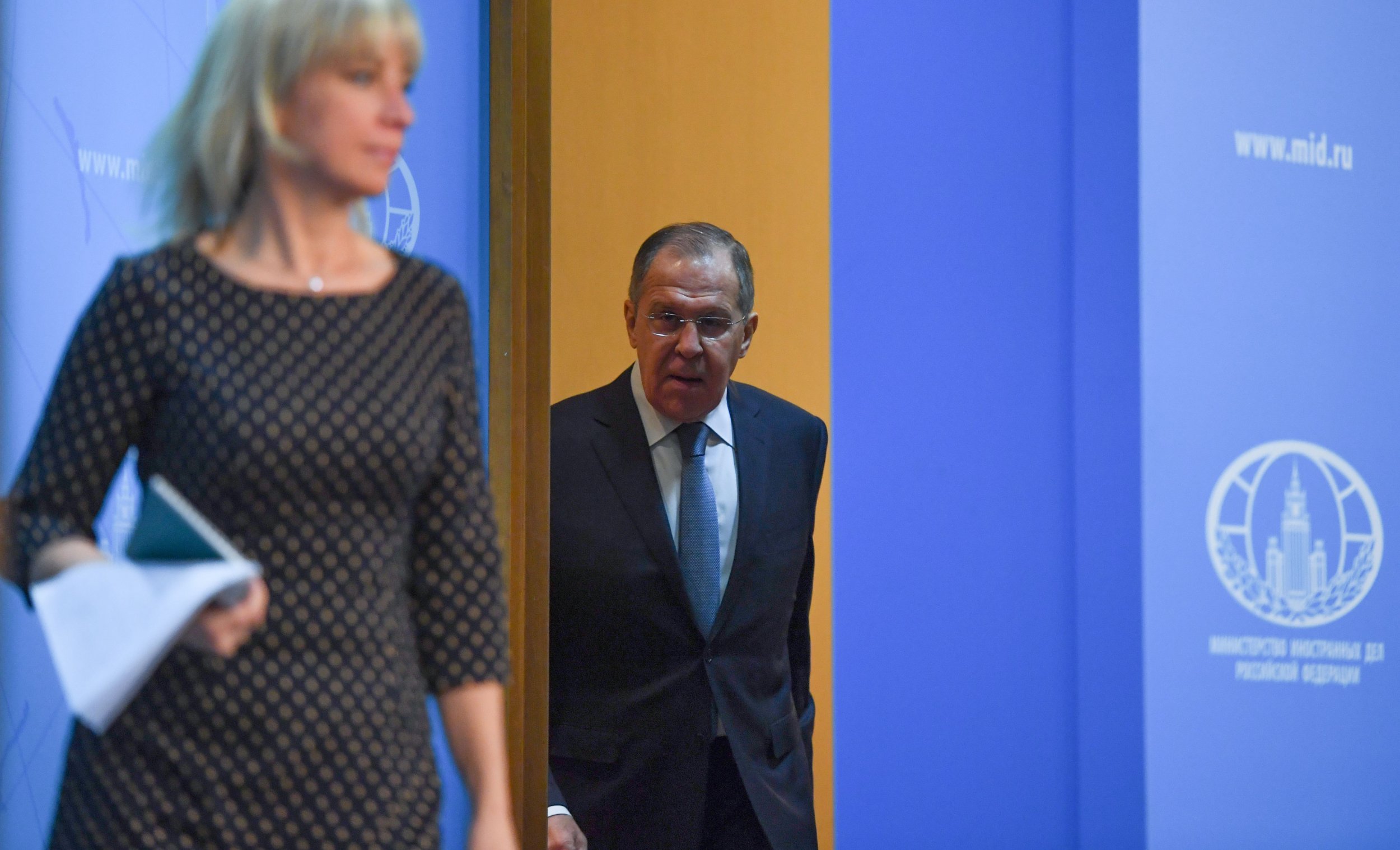
Russia has accused the United States of harboring dangerous hopes to develop and place weapons in space, which Moscow fears could make the state of the world even more fraught.
Russian Foreign Minister Sergey Lavrov made the accusation during his year-in-review press conference on Monday, after claiming that the U.S. had rebuffed a joint attempt by Russia and China to strike a wider agreement on the "militarization of space."
The idea of using outer space in military strategic planning became increasingly significant during the Cold War, as military and space exploration technology developed. In 1967, Washington, Moscow and most other governments in the world agreed a set of provisions meant to ensure that the use of space should be free of weapons of mass destruction.
Read more: Russia's military resurgence is the top threat for Europe, U.S. general says
Today, the U.S., Russia and other nations with advanced space programs have space-based military capability, at least in so far as using navigation satellites. How much further space can and should be incorporated into military strategy, is a contentious issue.
Lavrov accused the U.S. of harboring hopes to place arms in space one day and reissued a reminder of a draft treaty he once personally submitted to the United Nations in 2008, seeking to agree new and heavy limitations on the use of weapons in space.
"Regrettably, this treaty has not yet been discussed due to the U.S. position," Lavrov said, according to the Russian Ministry of Defense's readout from the event. "All other countries understand the urgency of this problem but the United States continues nurturing plans to militarize outer space, in the sense of the deployment of weapons in outer space, which will, naturally, add another negative dimension to the problems of international security."
The Russian minister did not elaborate on what, if any, specific capabilities Moscow fears the U.S. is trying to develop.
The White House swiftly rejected the document in 2008, pointing out that among the problems with it was the imprecise definition of what qualified as a weapon in space.
"Any object orbiting or transiting through space can be a weapon if that object is intentionally placed onto a collision course with another space object," White House Press Secretary Dana M. Perino told the New York Times at the time. "This makes treaty verification impossible."
Offensive weapons have not been placed in space so far, though the U.S. has been at the vanguard of proposals to incorporate space into national defense further. President Ronald Reagan's unsuccessful Strategic Defense Initiative—a laser-based anti-missile missile shield—has been among the most ambitious projects to reimagine space-based defense capabilities. The program, colloquially called "star wars," received heavy criticism from Moscow, arguing that it violates arms control obligations. The U.S. indefinitely stalled the program in 1993.
Related: Russia will sue U.S. over diplomatic sanctions, to diplomat says
Since the days of the Reagan administration, the U.S. and Russia have found increasing difficulties in aligning arms control priorities. Russia has repeatedly been at the receiving end of accusations of violating a series of marquee commitments that seek to limit existing arms and prevent the outbreak of conflict.
The U.S. has accused Russia of disregarding the Intermediate-Range Nuclear Forces Treaty with missile deployments in its west, while NATO has complained that Russian military drills have consistently failed to meet transparency requirements.
The U.S. Department of Defense did not immediately respond to a request for comment.
Uncommon Knowledge
Newsweek is committed to challenging conventional wisdom and finding connections in the search for common ground.
Newsweek is committed to challenging conventional wisdom and finding connections in the search for common ground.
About the writer
I am a Staff Writer for Newsweek's international desk. I report on current events in Russia, the former Soviet Union ... Read more
To read how Newsweek uses AI as a newsroom tool, Click here.








